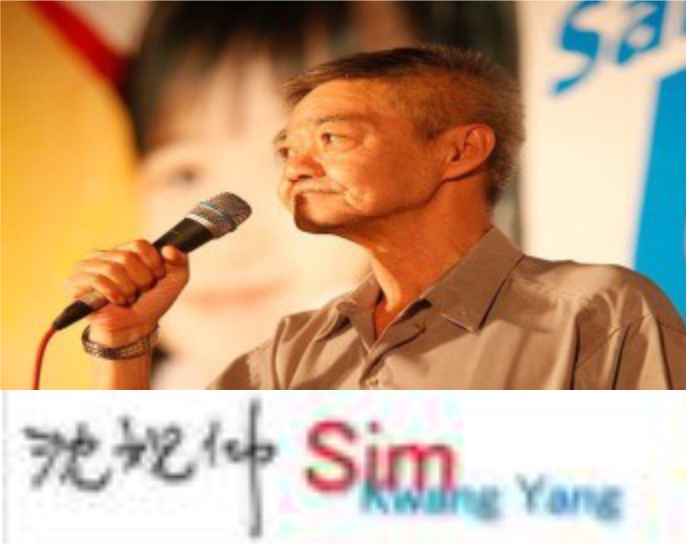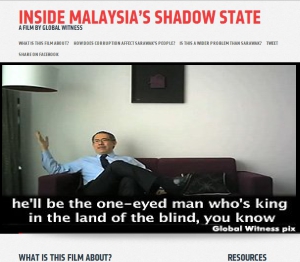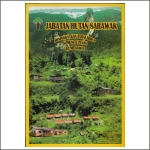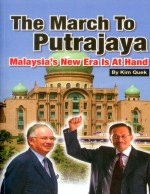 TMI
TMI
A superinjunction obtained by the Australian government in the banknote scandal was the best way to protect senior political figures from disparaging remarks, the Australian embassy in Indonesia said.
In a statement, the embassy said the naming of prominent Southeast Asian leaders in the order last week does not imply any wrongdoing on their part.
“The orders are to prevent publication of information which could suggest the involvement in corruption of senior political figures in the region.
“The Australian government considers that the suppression orders remain the best means for protecting specific senior political figures in the region.”
The embassy said the banknote scandal was a long-running complicated case which named a large number of individuals.
The Australian government also stressed that Indonesian president Susilo Bambang Yudhoyono and former Indonesian president Megawati Sukarnoputri were not subjects of investigations.
“Any breach of the suppression orders are taken seriously and will be referred to the police” the statement read.
WikiLeaks on Wednesday revealed that a multimillion-dollar graft case involving Indonesia, Malaysia and Vietnam had been covered up after the Australian government obtained a superinjunction.
The graft case had explicitly named past and present leaders from Indonesia, Malaysia and Vietnam, their relatives and other senior officials.
It involves subsidiaries from the Reserve Bank of Australia, namely Securency and Note Printing Australia.
Employees from both companies are alleged to have bribed foreign officials in in Malaysia, Indonesia and Vietnam from 1999 to 2004 to win banknote printing contracts.
“This is an unprecedented act of censorship by Australian authorities concerning such a high profile and multi-million dollar case,” said WikiLeaks publisher Julian Assange.
“Grounds of national security have been invoked by Australian authorities to prevent any reporting on this case to protect the country’s international relations.”
Assange said the court order had been issued following the secret indictment of seven senior executives from subsidiary companies of the Reserve Bank of Australia.
WikiLeaks revealed that 17 high profile individuals on the suppression list included past and present prime ministers of Malaysia.
Prime Minister Datuk Seri Najib Razak and his predecessors Tun Dr Mahathir Mohamad and Tun Abdullah Ahmad Badawi were among the listed.
Also named were former International Trade and Industry Minister Tan Sri Rafidah Aziz and former Foreign Affairs Minister Tan Sri Syed Hamid Albar.
“The superinjunction specifically bans the publication of the order itself, which effectively blacks out the largest high-level corruption case in Australia and the region,” Assange said.
He said that with the order, “the Australian government is not just gagging the Australian press. It is blindfolding the Australian public”.
“Foreign Minister Julie Bishop must explain why she is threatening every Australian with imprisonment in an attempt to cover up an embarrassing corruption scandal involving the Australian government.
“The concept of ‘national security’ is not meant to serve as a blanket phrase to cover up serious corruption allegations involving government officials, in Australia or elsewhere.”
Assange said it was in the public interest for the press to be able to report on the case, which concerned the subsidiaries of the Australian central bank.
“Who is brokering our deals, and how are we brokering them as a nation?”
The bribery allegations first surfaced in 2009 which prompted Australian Federal Police and the Malaysian Anti-Corruption Commission (MACC) to begin separate investigations.
In 2010, the MACC detained three individuals linked to the supply of RM5 polymer notes following a report that Securency had offered bribes to officials in Malaysia.
All three, including a businessman, were charged with taking RM11.3 million to secure the contract from Bank Negara Malaysia and to ensure that the government of Malaysia opted for the polymer notes.






















Imagine the Australian government trying to cover the butts of Mahathir, Badawi and Najib among other crooks involved in this case. Australia is now synonymous with bribe and corruption by not exposing the wrongdoings of all guilty parties.
Comment by Geronimo Miller — August 5, 2014 @ 10:35 PM |
Why is there a need to protect the corrupt, regardless of status? This excuse from the Aussie Government smacks of injustice and rottenness. Nobody is above the law! Even a child would know that. Shame on you, Aussie Government. There is no credibility and integrity left of you.
Comment by Sharpshooter — August 4, 2014 @ 8:46 PM |